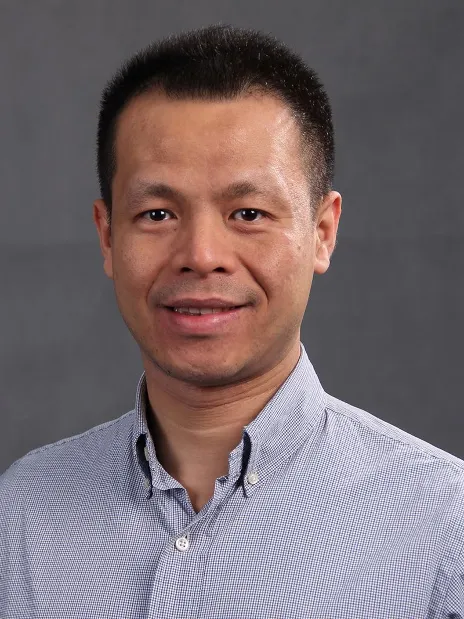MSDE
A molecular engineering journal: building and designing systems from the molecular level.
Editors-in-Chief: Claire S Adjiman and Andrew Ferguson
Open Access: Hybrid

Molecular Systems Design & Engineering (MSDE) publishes work which establishes new understanding of molecular properties and behaviours, and uses this understanding to design and assemble better materials, systems, and processes to achieve specific functions.
At the interface of the chemical sciences and engineering, this unique journal is a joint venture between the Royal Society of Chemistry and the Institution of Chemical Engineers (IChemE).
ISSN: 2058-9689
Indexed in: Web of Science, Scopus
Journal Impact Factor
3.2 (2024)
First decision time (all)
21.5 days
First decision time (peer reviewed)
38 days
Scope
Molecular Systems Design & Engineering (MSDE) is an interdisciplinary journal reporting cutting-edge molecular engineering research.
Molecular engineering employs experimental, theoretical and computational approaches to establish new understanding of molecular properties and behaviours, and uses this understanding to design and assemble better materials, systems, and processes to achieve specific functions. MSDE provides a hub for research into new understanding of molecular systems and the use of this understanding in applications of technological significance that help address global challenges.
MSDE brings together physics, biology, chemistry, engineering, and materials science to address:
- New concepts, capabilities and tools based on the study of the behaviour of molecular systems
- Screening, design, engineering, and optimisation of molecules, materials, and systems
- The conception, design, or engineering of functional devices based on molecular principles
- Development or use of statistical or machine learning methodologies for molecular design
- Integrated artificial intelligence and automated robotics in experimental science
All papers should address a molecular design or optimisation strategy. This can include the implementation of a molecular design or optimisation strategy targeting the functionality and performance of a system or process of interest. It can also include the development of a new molecular design or optimisation strategy based on fundamental insight into the parameters of a system or process of interest. Methodologies that have utility beyond the scope of the reported work, those covering multiple scales, and those discussing potential technological advances and applications, are particularly encouraged.
Examples of relevant systems and applications include, but are not limited to, the following:
- Energy: batteries, solar devices, fuel cells, thermoelectrics, electrocatalysis & photocatalysis
- Environmental: membranes, porous materials, detection & monitoring devices
- Bioengineering: imaging & diagnostics, tissue engineering & regeneration, therapeutics design & delivery, immune engineering.
- Quantum engineering: computing, cryptography, sensors, photonics
- Nano-manufacturing and control: directed self-assembly, nano-lithography, additive manufacturing
- Hard and soft materials: liquid crystals, ceramics, lubricants, polymers, glasses
- Electronics: molecular wires and switches, organic devices
- Processes: catalysis, solvents, chemical manufacturing, CO2 capture
The MSDE proposition, at the crossroads between pressing societal needs and emerging scientific innovation, is timely and compelling. The journal excels at bringing together researchers across often disparate fields of research to form a “molecular systems design community"
Claire Adjiman, Editor-in-chief
The combination of articles focused on new methods with those focused on specific applications provides an ideal opportunity to identify cross-pollination between these two distinct, but mutually reinforcing, thrusts
Andrew Ferguson, Deputy Editor-in-chief
Information for authors
Want to publish in this journal? Our author guidelines explain how to prepare and submit your article and provide useful information on the review and publication process including transfers, revisions and any article processing charges (APCs) that may apply.
You can read our payments and funding information for further details about APCs, which may apply for publishing open access in this journal, as well available discounts and waivers.
You may be able to publish open access in this journal, with no APC to pay, if your institution has an open access agreement with us. You can use our journal finder tool to check for agreements between us and your institution.
Meet the team











Alfredo Alexander-Katz
Massachusetts Institute of Technology (MIT)
Helena Azevedo
Queen Mary University of London
Andre Bardow
ETH Zürich
Jeremy Baumberg
University of Cambridge
João Cabral
Imperial College London
Neil Champness
University of Nottingham
Paulette Clancy
Johns Hopkins University
Marc-Olivier Coppens
UCL
Andrew deMello
ETH Zürich
Juan de Pablo
University of Chicago
Cécile Dreiss
King's College London
Thomas Epps III
University of Delaware
Lei Fang
Texas A&M University
C. Daniel Frisbie
University of Minnesota
Xuefeng Guo
Peking University
Raju Kumar Gupta
Indian Institute of Technology Kanpur
Sarah Heilshorn
Stanford University
Arthi Jayaraman
University of Delaware
Takashi Kato
The University of Tokyo
Kristi Kiick
University of Delaware
Sang Ouk Kim
KAIST
Heather Kulik
Massachusetts Institute of Technology (MIT)
Jodie Lutkenhaus
Texas A&M University
Bert Meijer
Eindhoven University of Technology
Takashi Nakanishi
NIMS
Ki Tae Nam
Seoul National University
Insup Noh
Seoul National University of Science & Technology
Mark A. Olson
Tianjin University
Jon Parquette
Ohio State University
Boaz Pokroy
Israel Institute of Technology
Jeffrey Rimer
University of Houston
Randy Snurr
Northwestern University
Brigitte Stadler
Aarhus University
Doros Theodorou
National Technical University of Athens
Matthew Tirrell
University of Chicago
Bernhardt L. Trout
Massachusetts Institute of Technology (MIT)
Raymond W. Y. Wong
Hong Kong Polytechnic University
Jing Zhang
Chinese Academy of Sciences (CAS)
Jia Zhu
Nanjing University
Meifang Zhu
Donghua University
Maria Southall
Executive Editor
Sophie Orchard
Deputy Editor
Cara Sutton
Editorial Manager
Molly Colgate
Assistant Editor
Katie Morton
Assistant Editor
Charu Storr-Vijay
Assistant Editor
Alison Winder
Assistant Editor
Basita Javeed
Editorial Assistant
Allison Holloway
Publishing Assistant
Sam Keltie
Publisher
Read this journal
Review article
Toward understanding biomolecular materials comprising intrinsically disordered proteins via simulation and experiment
Paper
Quantum chemical screening of eutectic solvent components for insights into CO2 complexation mechanisms
Paper
Elucidating the role of charge transfer on semiconductor properties in a new donor–acceptor cocrystal 1,5-dihydroxynaphthalene : TCNQ
Paper
Construction of an organic cage-based porous ionic liquid using an aminal tying strategy
More from this journal
Contact the journal team
We're here to help. Contact the journal team if you have any questions about publishing your paper with us.
Sign up for journal email alerts
Get table of contents alerts and notifications about calls for papers, themed issues and more.
